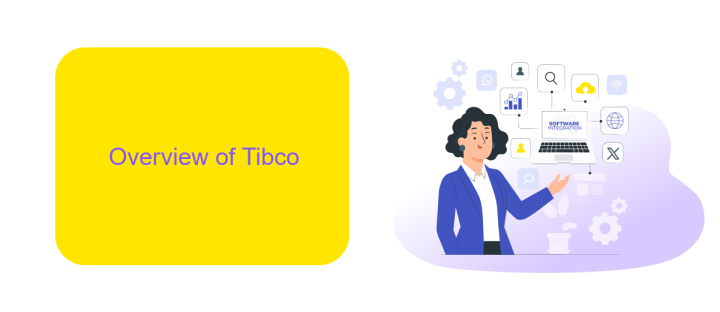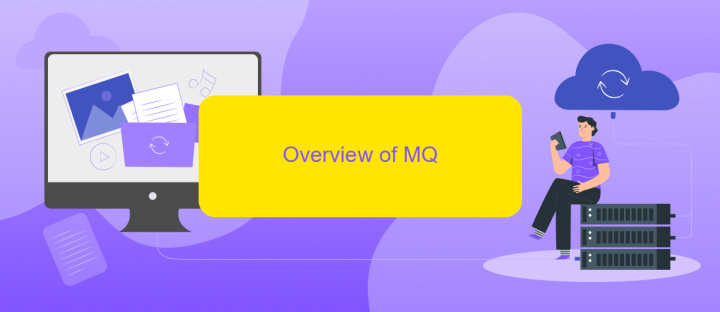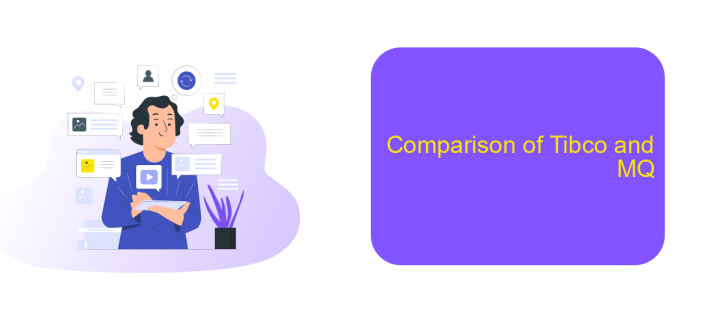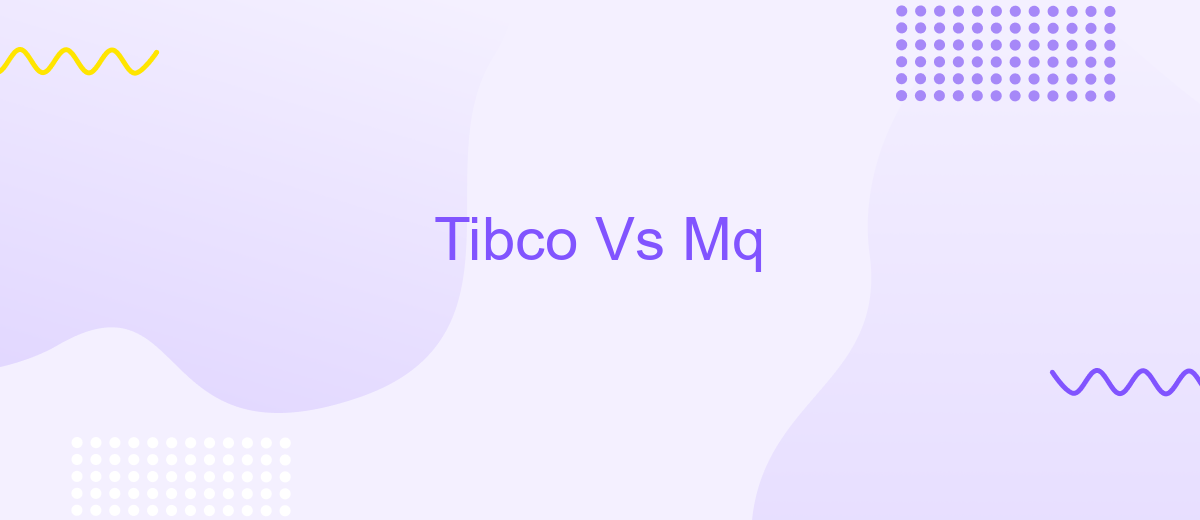Tibco Vs Mq
In the realm of enterprise messaging systems, Tibco and IBM MQ stand out as two of the most prominent solutions. Both platforms offer robust capabilities for message-oriented middleware, but they cater to different business needs and technical requirements. This article delves into a comparative analysis of Tibco and IBM MQ, highlighting their key features, strengths, and potential drawbacks.
Introduction
In today's fast-paced digital landscape, efficient and reliable message queuing systems are crucial for seamless integration and communication between various applications and services. Two prominent players in this domain are TIBCO and IBM MQ. Both offer robust solutions, but they cater to different needs and preferences, making it essential to understand their unique features and capabilities.
- TIBCO: Known for its real-time data distribution, TIBCO provides a comprehensive suite of integration tools that are highly scalable and flexible.
- IBM MQ: Renowned for its reliability and security, IBM MQ excels in ensuring message delivery and is widely used in enterprise environments.
- ApiX-Drive: This service simplifies the integration process by offering no-code solutions, enabling businesses to connect various applications effortlessly.
Choosing between TIBCO and IBM MQ depends on several factors, including specific business requirements, existing infrastructure, and long-term goals. Understanding the strengths and limitations of each can help organizations make informed decisions to optimize their integration strategies. Additionally, leveraging services like ApiX-Drive can streamline the integration process, making it more accessible and efficient.
Overview of Tibco

Tibco is a leading provider of integration, analytics, and event-processing software for companies to use in building and managing their digital ecosystems. Founded in 1997, Tibco has developed a comprehensive suite of tools that enable organizations to connect disparate systems, applications, and data sources seamlessly. The platform's robust capabilities allow enterprises to streamline operations, enhance decision-making, and improve customer experiences by leveraging real-time data and insights.
One of Tibco's standout features is its ability to support complex integrations with minimal coding, making it accessible to both technical and non-technical users. For example, services like ApiX-Drive can be utilized alongside Tibco to simplify the integration process, allowing businesses to automate workflows and synchronize data across multiple platforms effortlessly. By combining Tibco's powerful integration solutions with user-friendly services like ApiX-Drive, organizations can achieve greater efficiency and agility in their digital transformation initiatives.
Overview of MQ

Message Queuing (MQ) is a robust middleware technology that enables asynchronous communication between distributed systems. It ensures reliable message delivery, decouples sender and receiver, and provides fault tolerance. MQ systems are widely used in enterprise environments to facilitate seamless data exchange and improve application scalability.
- Message Broker: Manages the storage and routing of messages.
- Producers: Applications that send messages to the queue.
- Consumers: Applications that receive messages from the queue.
- Queues: Temporary storage locations for messages.
One of the key advantages of using MQ systems is their ability to integrate with various services and applications. Tools like ApiX-Drive can further enhance this integration by automating data transfers and synchronizations between different platforms. This not only reduces manual effort but also ensures data consistency across systems, making it an essential component in modern IT infrastructure.
Comparison of Tibco and MQ

Tibco and MQ are both powerful middleware solutions used for integrating various applications and systems. While both serve similar purposes, they have distinct features and capabilities that cater to different needs and preferences. Understanding these differences can help organizations make an informed decision.
Tibco is known for its comprehensive suite of integration tools, offering robust support for complex enterprise environments. It excels in providing high-performance messaging and real-time data distribution. On the other hand, IBM MQ, formerly known as WebSphere MQ, is renowned for its reliability and security in message-oriented middleware, making it a preferred choice for financial institutions and other sectors requiring stringent data integrity.
- Performance: Tibco generally offers higher throughput and low latency.
- Reliability: IBM MQ is favored for its robust transactional support and message persistence.
- Ease of Use: Tibco provides a more user-friendly interface and extensive documentation.
- Scalability: Both platforms are highly scalable, but Tibco offers more flexibility in complex integrations.
- Integration: Tools like ApiX-Drive can simplify the integration process for both Tibco and MQ.
Ultimately, the choice between Tibco and MQ depends on the specific requirements of the organization. For high-performance needs and complex integrations, Tibco may be the better option. Conversely, for environments where reliability and security are paramount, IBM MQ stands out. Utilizing integration services like ApiX-Drive can further streamline the process, ensuring seamless connectivity between systems.
Conclusion
In conclusion, both Tibco and MQ offer robust solutions for enterprise messaging and integration. Tibco is known for its high-performance capabilities and extensive suite of tools, making it a suitable choice for complex integration scenarios. On the other hand, MQ provides a reliable and straightforward messaging platform that excels in ensuring message delivery and maintaining system stability.
Choosing between Tibco and MQ ultimately depends on the specific needs of your organization. For those looking to streamline and automate their integration processes, services like ApiX-Drive can offer valuable assistance. ApiX-Drive enables seamless integration between various platforms without the need for extensive coding, enhancing the efficiency of your operations. By carefully evaluating your requirements and leveraging the right tools, you can ensure a successful integration strategy that meets your business objectives.


FAQ
What are the primary differences between TIBCO and IBM MQ?
Which one is better for real-time data processing, TIBCO or IBM MQ?
Can TIBCO and IBM MQ be used together?
How do these platforms handle scalability?
What are the options for automating and integrating these platforms?
Apix-Drive will help optimize business processes, save you from a lot of routine tasks and unnecessary costs for automation, attracting additional specialists. Try setting up a free test connection with ApiX-Drive and see for yourself. Now you have to think about where to invest the freed time and money!

